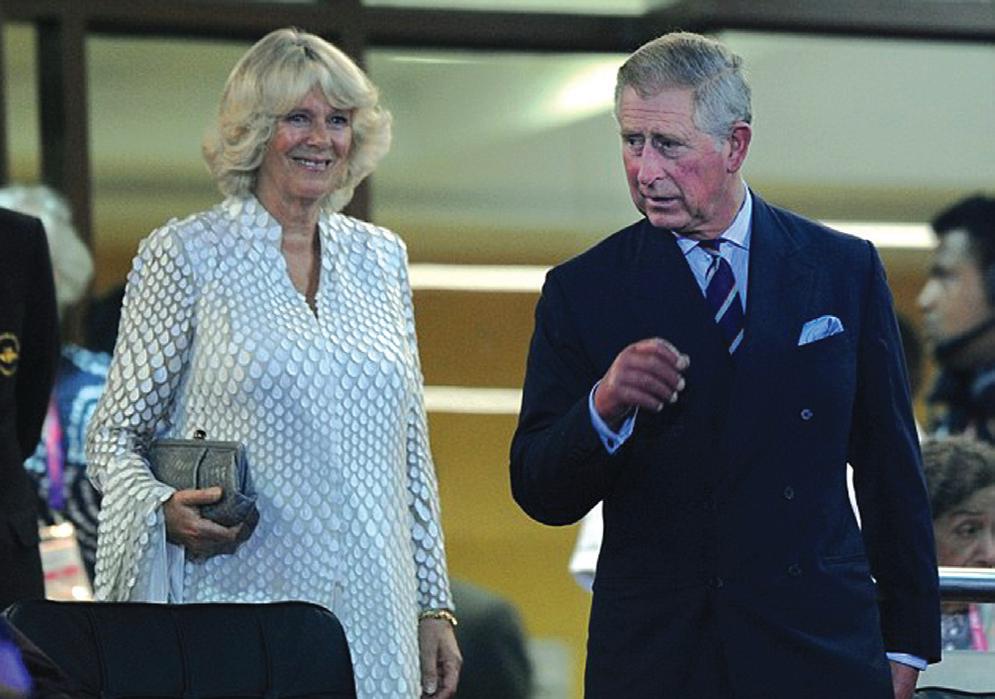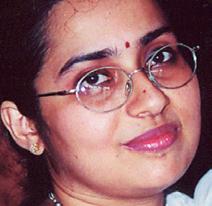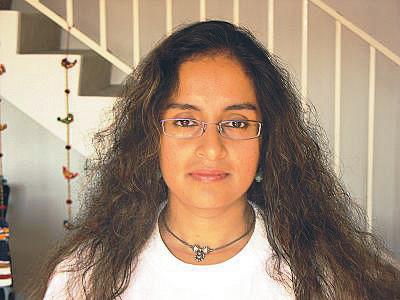
4 minute read
Dementia expert named Scientist of the Year
from 2010-10 Melbourne
by Indian Link
A distinguished and talented individual, committed to the cause of helping those suffering from dementia, claims a well-deserved award
BY USHA RAMANUJAM ARVIND

Eminent writer, UNSW Scientia Professor and Clinical Director of the Neuropsychiatric Institute (NPI), Dr Perminder Singh Sachdev has been awarded 2010 Scientist of the Year for Biomedical Sciences.
The award, which was established in 2008 by the NSW Office for Science and Medical Research (OSMR), “recognises the State’s leading researchers for cutting edge work that generates economic, health, environmental or technological benefits for NSW”.
Congratulating the India born and educated academic, whose core clinical interests include neuropsychiatry and psychopharmacology, UNSW Dean Peter Smith stated that the OSMR citation was “a prestigious acknowledgement of the great work he is doing”.
“It is an encouraging recognition of our work for the past two decades”, Dr Sachdev told Indian Link, “particularly given that the awards are only in their third year. That makes it especially important”. “And I could not have achieved it without the support of my wife Dr Jagdeep, who has steadfastly been there for me”, he gratefully added.
prevalence of neurocognitive disorders is increasing at an alarming rate. The cost to society and the economy is indeed huge”, admitted Sachdev.
Thankfully, there is a worldwide effort now to develop new intervention strategies, which include drugs to prevent the development of pathology or to slow its progression, he acknowledged. Likewise other strategies are being examined as well, including ways to increase the plasticity of the ageing brain. “We are also developing treatments such as cognitive and physical activity to slow down cognitive decline”.
In this context NPI has a close collaboration with researchers at Sydney Uni for a smart trial to help slow the progression of impairment in those with mild memory problems. “And it is very likely that it will become a commonly applied intervention”, he explained.
NPI has also made significant progress on the stem cell front. Dr Sachdev’s team developed a neural stem cell three years ago to trial treatments for neurodegenerative disorders. The group is currently experimenting with stem cells from embryonic tissue, adult dogs and adult humans to develop cell lines targeting Alzheimers and dementia sufferers.
Dr Sachdev’s team developed a neural stem cell three years ago to trial treatments for neurodegenerative disorders
Winning accolades, however, has been a lifelong tradition for the acclaimed scholar with quite a Midas touch.
Besides striking gold at the HSC and at the under graduate medical levels, the former president of the International Neuropsychiatry Association, was named best all rounder at his alma mater, All India Institute of Medical Sciences (AIIMS) New Delhi. International citations and honours have effortlessly come by the erudite academic, who migrated to NZ in the late eighties to complete his doctoral thesis in ethno-psychology.
The NPI, with which he has been associated since his move to Australia in the early nineties, is an elite tertiary referral unit for complex neuropsychiatric disorders at the Prince of Wales Hospital.
“We see a range of disorders, which lie at the border of psychiatry and neurology”, he explained.
“Our particular focus has been cognitive ageing, dementia and other neurodegenerative disorders and Tourette syndrome. As well, we conduct studies on psychiatric disorders associated with epilepsy, stroke, brain tumours, adult ADHD and a range of other disorders. We also have specialized projects on obsessivecompulsive disorder and anorexia nervosa”, he indicated.
The articulate neuropsychiatrist is also heading a brain stimulation program, which is investigating new treatments such as transcranial magnetic stimulation and vagus nerve stimulation.
“As Australia’s population ages, the
While his early focus at NPI was on drug-induced movement disorders like akathisia, tardive dyskinesia and neuroleptic malignant syndrome, Dr Sachdev soon moved onto dementia, in particular, risk factors, biomarkers, neuro-imaging and neuropsychology.
“My team began to specifically focus on vascular dementia”, he reminisced.
The second most common cause of dementia worldwide, after Alzheimers, it is caused by disease in the blood vessels that supply the brain.
“We initially examined the clinical features and showed that memory impairment is not the early feature of this disorder. Rather it is the small vessel disease, even in patients with stroke. Likewise, we also showed that high homocysteine may be a risk factor in brain atrophy and small vessel disease.”
Dr Sachdev is now heading an international effort to define the criteria for the diagnosis of vascular dementia.
“We are conducting a number of longitudinal studies to examine the development of cognitive impairment, including memory and ageing study, older Australian twins study and Sydney centenarian study. NPI is also working with researchers at ANU on the PATH (Personality and Total Health) through Life study”.
Besides publishing hundreds of research papers and scientific texts, Sachdev has recently forayed into the fascinating grey area between fact and fiction. A talented and empathetic wordsmith, his maiden literary effort, Yipping Tiger and other Tales Rotary Knowledge Dissemination award, taps into his extensive research experience to explore the power of the human brain. He was a special invitee at the 2010 Melbourne Writers Fest.
BY SHERYL DIXIT

Lights, camera, action! Drumbeats filled the air, the world’s largest helium balloon slowly began to ascend and the inauguration ceremony of the 19th Commonwealth Games 2010 began to unfold.
Bollywood-like, one may think, but in truth and in a welcome change, the glitz and glamour of India’s film industry took a firm backseat at Delhi’s Jawaharlal Nehru stadium. It was a pleasant surprise for Indians, and a rather surprising one for non-Indians who largely and invariably associate all things Indian with Bollywood.
The various facets of the opening ceremony, from its mesmerising drumbeats to the mischievous smile on young Keshav’s face as his fingers danced on the tabla; from the athletes carrying the baton across the stadium to be handed over to Prince Charles at the end of its historic 170,000km journey through all the Commonwealth nations; from the strangely attired dancers who pirouetted to Hariharan’s enchanting music and then created a clever mural of mehndi; from the coordinated fireworks and the great Indian journey








